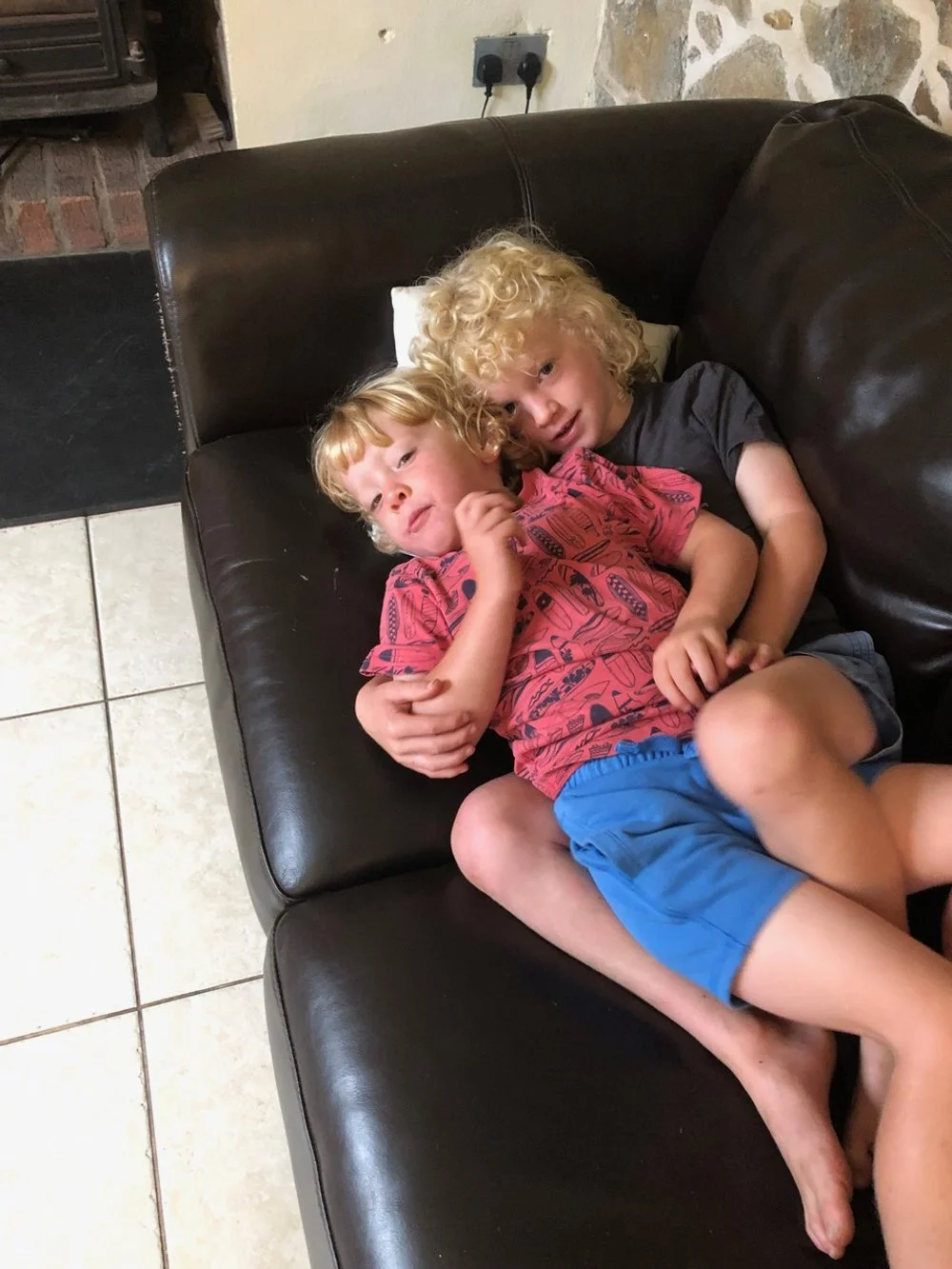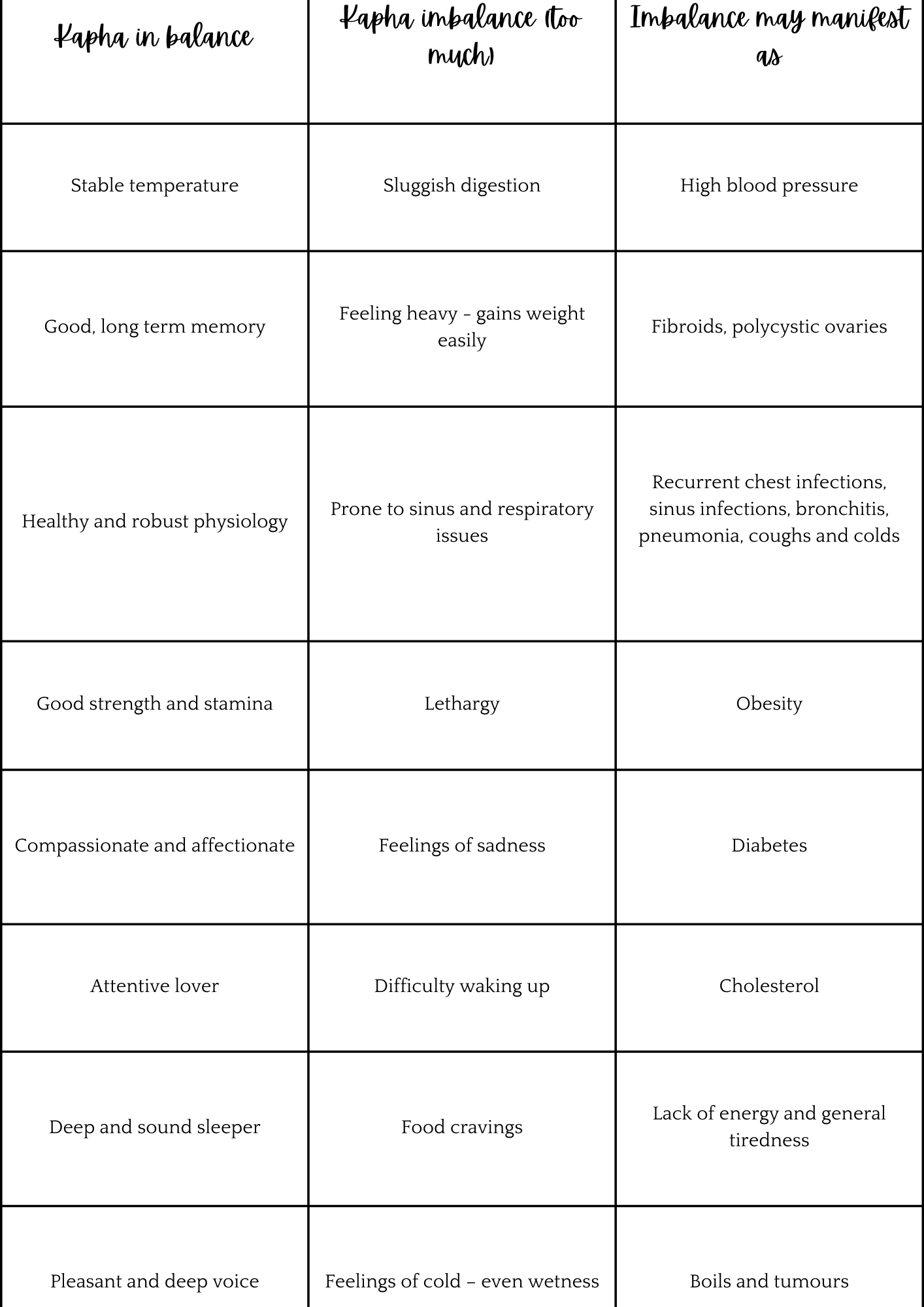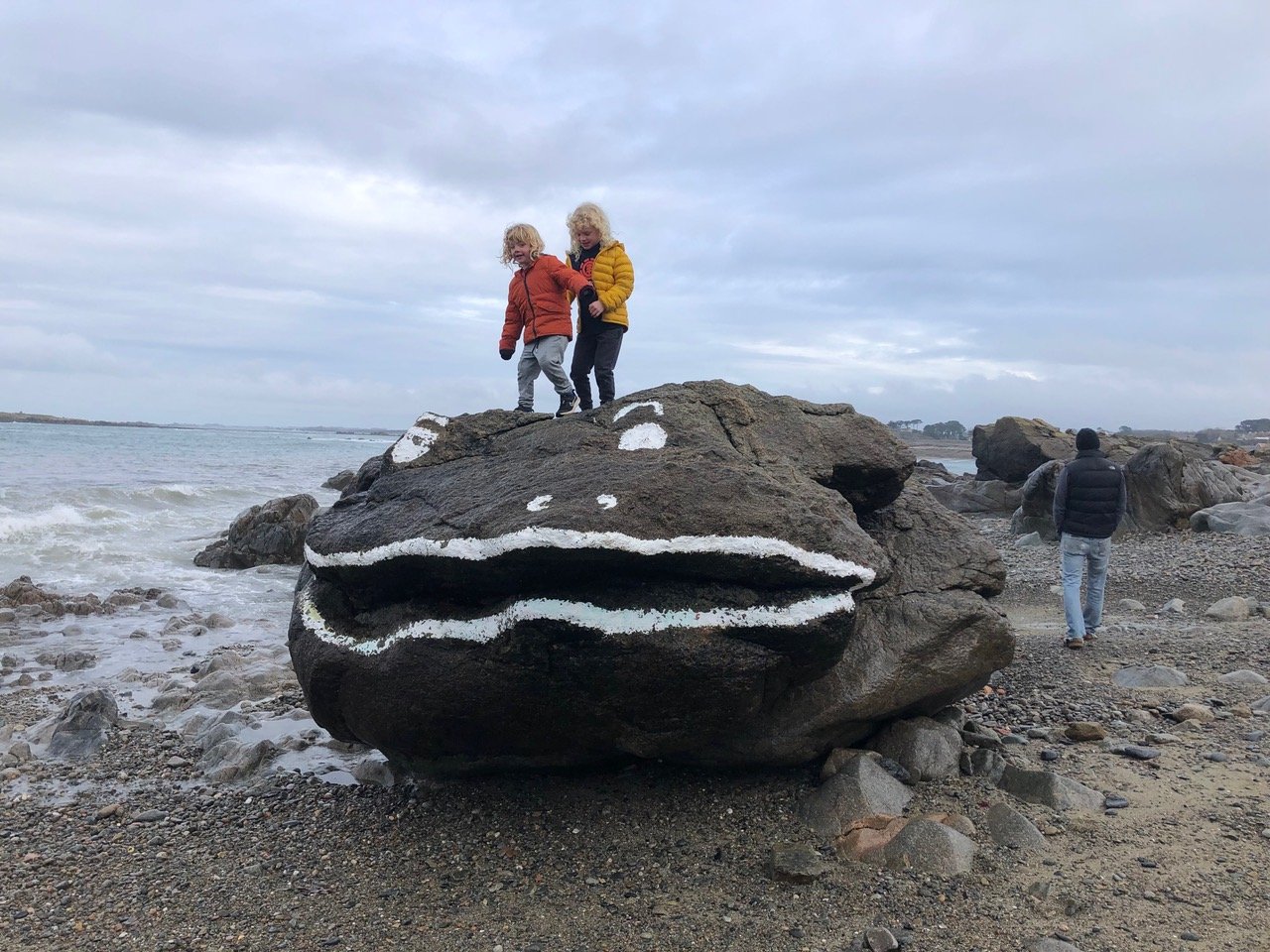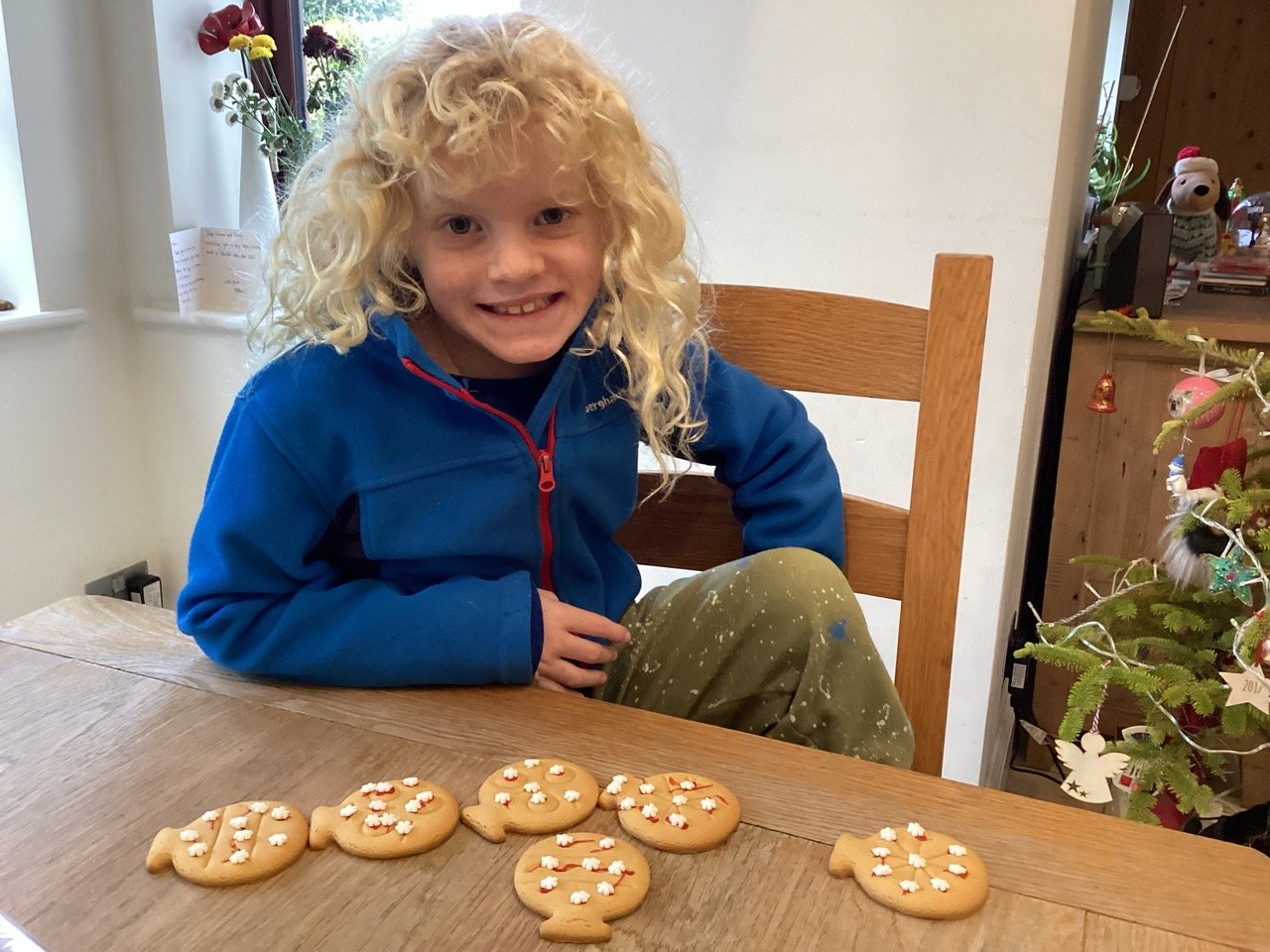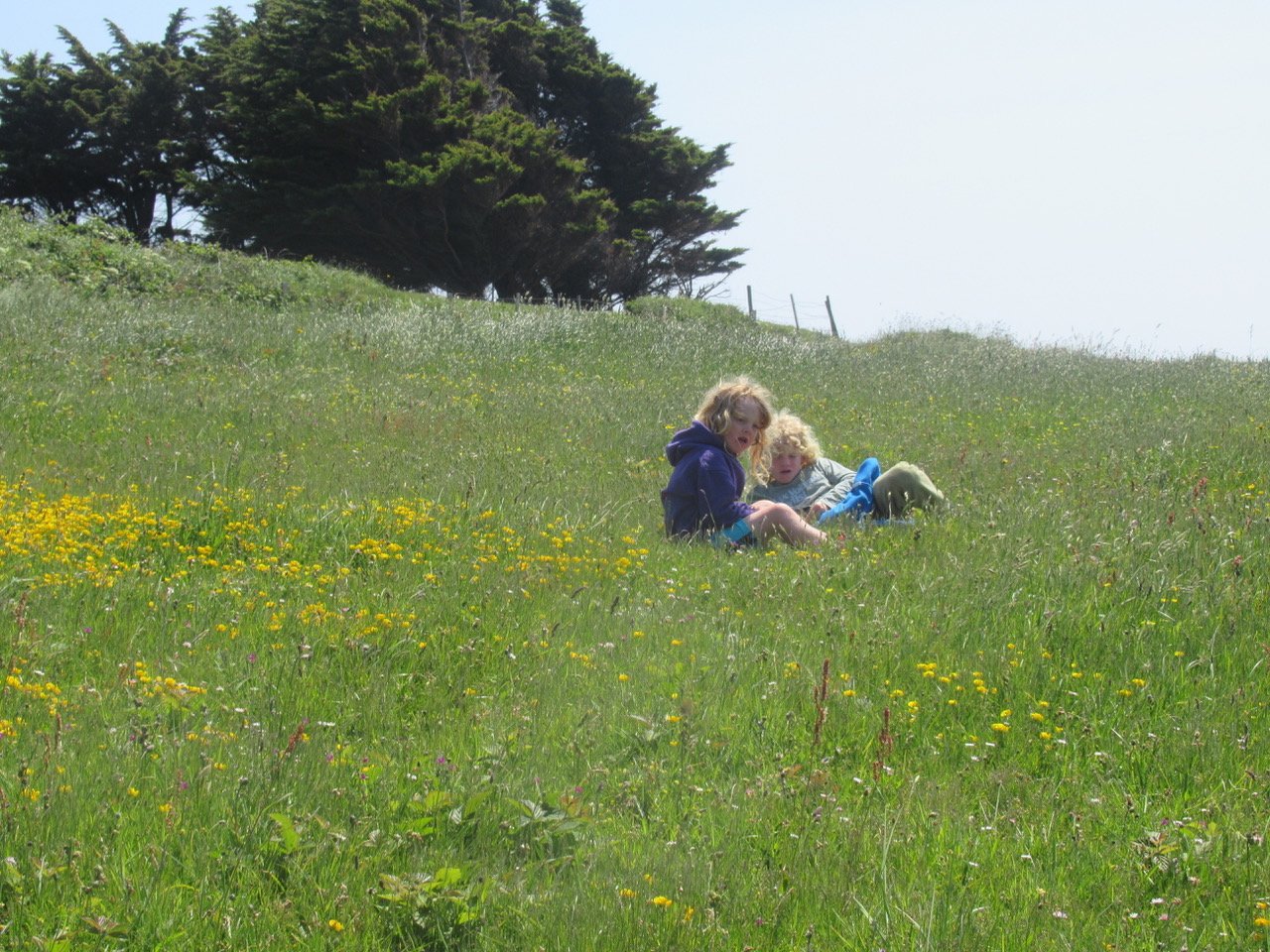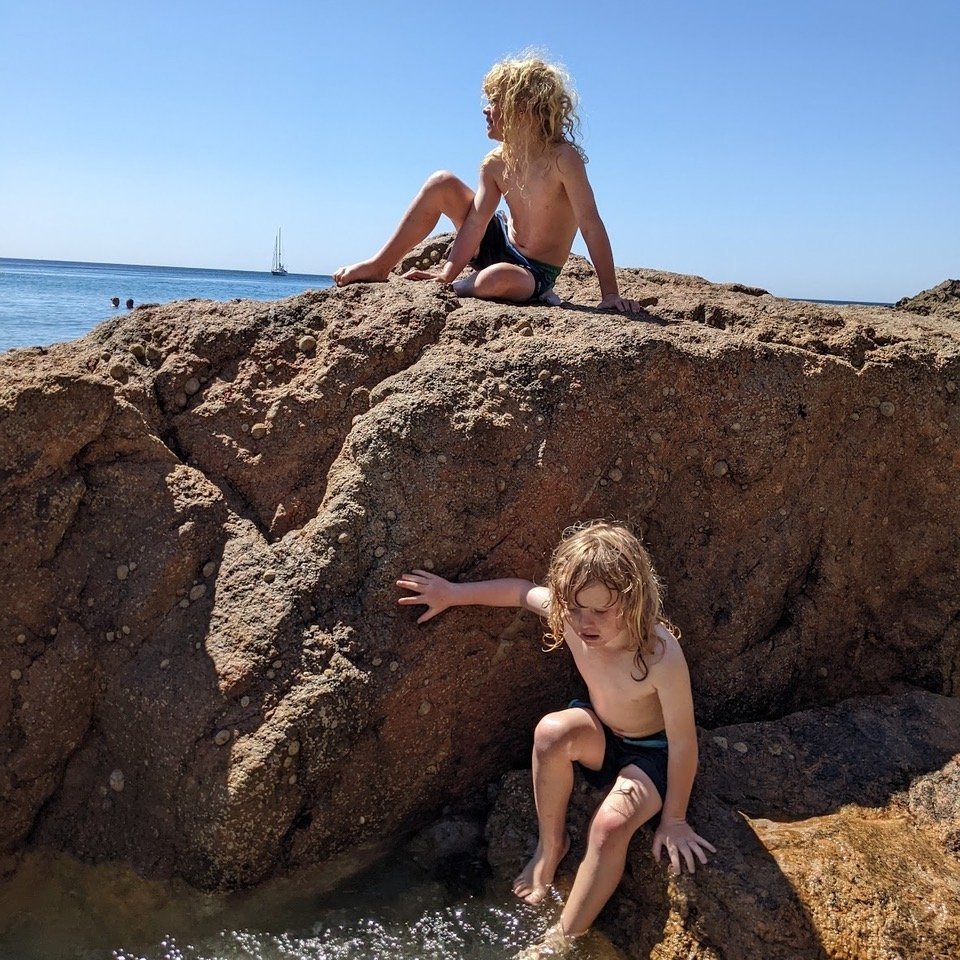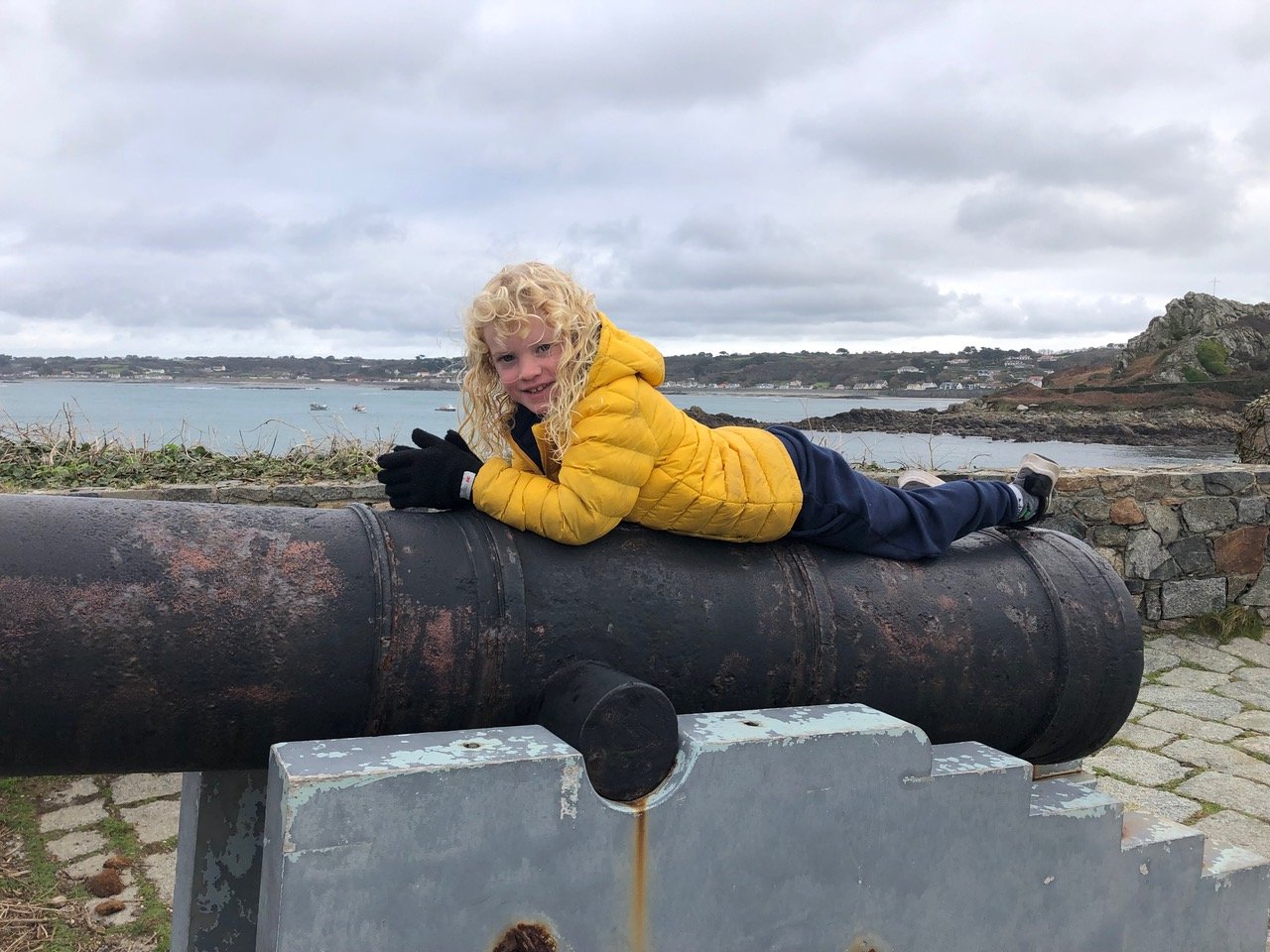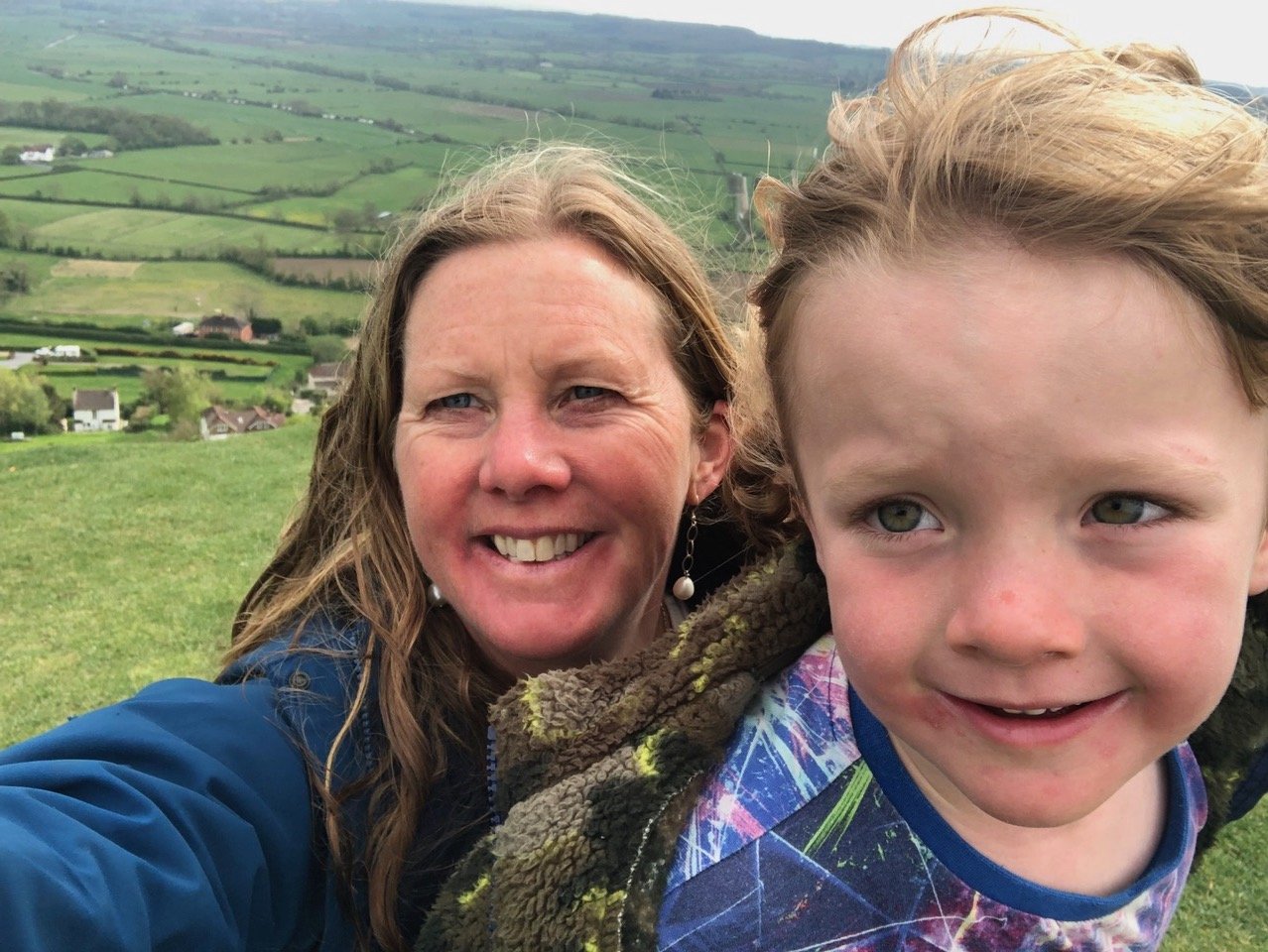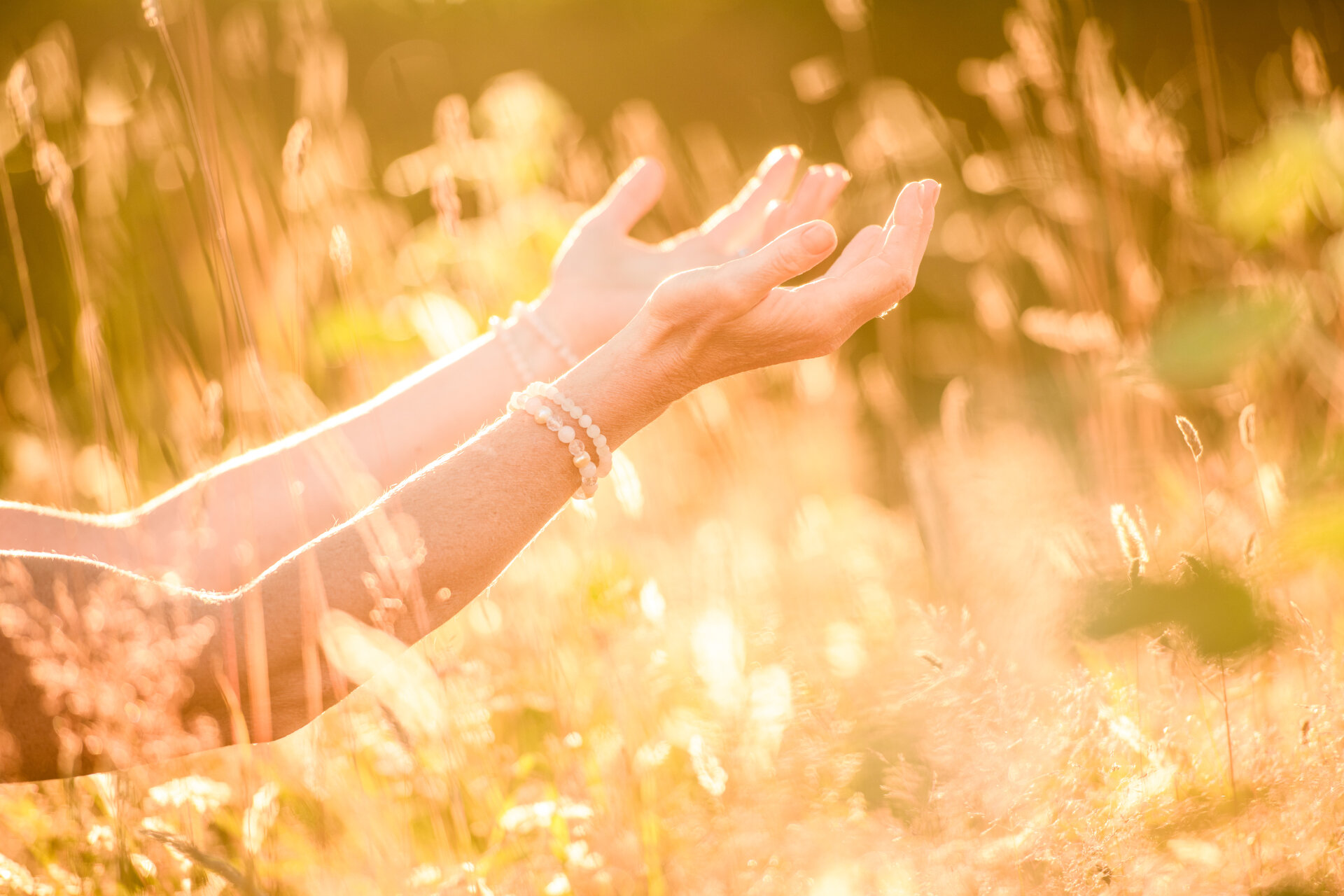
A spiritual reframe on autism?
I have always had the sense that children presenting on the Autism spectrum have been sent in to show us a new way of being. That these are especially sensitive and spiritual beings, who have lived many lifetimes and do not fit into our current systems because they know that there is another way to live; one which speaks of greater ease and freedom.
It’s something which has been in my awareness for some time now. When I first began this holistic journey with yoga and Reiki, I stumbled across a book by Doreen Virtue on Indigo children. While a pseudoscientific New Age concept, there was something about this idea that resonated.
Indigo children are children believed to possess special psychic, spiritual and sensory gifts and have indigo-coloured auras. Some believe that these gifted children born during the 1970s are upgraded blueprints of humanity – reincarnated souls that came to earth to challenge old ideas and ways of being and play a role in bettering all of humanity.
Some argue that the term was coined against the increasing overmedication of children diagnosed with and experiencing ADHD, as a way to better explain their child’s behaviour, let alone autism traits.
It’s possible that some of you born in the 70s and early 80s recognise some of the traits of supposed ‘indigo’ children:
Hypersensitivity to people and places.
A need for justice and coherence in their life, on all levels of being.
Independence – a need to always feel free, at all costs!
Strong mediation skills, will often defends the weak.
Major discomfort in hierarchical relationships- requires a healthy and respectful hierarchy.
Easier to communicate with nature and animals rather than with human beings. Not a fan of social gatherings, more likely to be found with the dig in another room.
Need ‘retreat’ moments to recharge.
Hypersensitivity to electromagnetism and noise.
Tendency to flee reality to take refuge in virtual worlds: either in video games or by spending one’s time communicating with angelic and other ethereal beings.
Fight for various and varied causes, body, mind and soul!
Feeling of being born with a mission… this to be fully you.
Feeling of having a gift, something more, which sets them apart from their peers.
Difficulty maintaining a stable social life. Tendency to hermitage every now and then.
Need for travel, to discover the world, have adventures.
Difficulty finding one’s place in the world as it is today.
Pleasure and comfort in a job that suits them – probably working for themselves or creating a job specific to them.
Gifted with a strong sense of empathy, easily tuned to others.
Disrupts established systems, encourages change.
Feeling of marginality, of having incarnated on the wrong planet, or with the wrong parents.
Interest in spirituality, intuition and extrasensory abilities.
Tendency to ask existential questions and want to resolve them through a spiritual journey.
This has always fascinated me, because of course I can relate to this, as many of you probably can too. New age circles will talk of crystal and rainbow children having been born since then, the rainbow children arriving from indigo children, so that there is an increasing ancestral line of sensitivity and ability to perceive life differently to others, beyond the mundane.
The Yoga Sutras talks of how we are not all born equally, contrary to what some new age circles may proclaim. Yoga Sutra 1.19 Bhavapratyayo-videhaprakrtila-yanam, which basically means some people start their journey further along this path (of yoga) than others. Some are born with the ability to reach higher states of samadhi (enlightenment/pure consciousness) where all disruptions have ceased. Until that time, there will be samskaras – traces from past experience will still be there.
What this means is that some are born wiser and more sensitive than others because of past life experience and karma and thus we are not all the same. This doesn’t mean that there is anything wrong with us just because we don’t fit the norm, at least not from a spiritual perspective. It just means that we are in different stages of our evolutionary journey, some possess special gifts, some have additional insight that they have brought with them, and others are still finding their way, or unconscious, yet to ‘awaken’ to being anything beyond a body in the 3D reality that we call, umm, reality!
My eldest, Elijah, is diagnosed autistic with the youngest awaiting an assessment, and I do certainly believe that they possess a certain sensitivity and the eldest most definitely sees things differently – he recently commented, “mummy, do you know that we are the only specie on Planet Earth who have to pay to live here? Although other species pay with their lives when we hunt them”. That got me thinking! But this also in the real sense of ‘seeing’, he sees the auras and energy centres of people, as colours, for example and can no doubt see ethereal beings given the chance.
I was interested then to stumble across a spiritual nutrition website, which – like Louise Hay – offers spiritual explanations for the reason that we may experience various illnesses and/or conditions. This on the basis that we are spiritual beings as well as physical beings, that our thoughts, attitudes and emotions affect our health as much as the physical world.
It is understood - and certainly this has been my experience - that profound healing becomes possible when we address both the spiritual and the physical aspects of a condition.
However I don’t believe that there is anything to heal contrary to the suggestion that comes with autism spectrum ‘disorder’ (‘ASD’). In so much as ASD is not something to fix, but certainly having an autistic child has demanded that we make changes as a family and individually too, because of the permission they give us, to reveal more of our own soul and live differently – some of you may have read my recent blog posts about our journey with home schooling, for example.
Having written that, it is only since we have stopped trying to ‘normalise’ our boys that there has been a healing. So while the boys did not need ‘fixing’ because of ASD, they certainly needed healing as a result of their experience in the school system, for example, and certainly their healing helped our own, because it was a rather traumatic and stressful few years for all of us, which cost Ewan and I our relationship, albeit there were other factors which fed into that.
So I share this in the hope that it might resonate, and perhaps shift the perspective on neurodiversity and ASD, into something to be celebrated, a gift no less, an opportunity to find a new way to be on Planet Earth, not just for the individual but for the whole family.
And maybe from there we might find another way as a community and as a society, where we embrace our differences, but without making it an individualised crusade – the current focus on “I/me” emphasis promoted by social media and media generally is certainly not helping us to thrive collectively or indeed spiritually.
This is extracted from the Spiritual Nutrition page, http://www.ourspiritualnutrition.com/is05.htm
“Beyond the physical aspect of this complex disorder, there are many spiritual components to be considered. Family history and behavioural patterns must be examined, along with the spiritual learning requirements of the family unit and those of the affected individual. Spiritual success is measured by the degree to which love manifests.”
At the end of the day, when all is said and done, all that remains really, one would hope, is love. Anything which takes us away from love should be dropped, any false identification or opportunity for self-pity, self-indulgence and self-importance must drop away, because it is only then that we can step more fully into who we truly are, beyond labels and definitions, to get right to the heart. The heart of each of my children is very strong and I am eternally grateful for their sensitivity and love.
It’s Kapha season!
Ahh. Take a slow, deep breath.
In Ayurevda, it is the kapha time of the year now. seeing us through to late spring. The winter/early spring season holds the perfect antidote to the fast-paced movement of summer and autumn This is a time to rest, reflect, hold space, vision, hibernate, and withdraw some of our outwardly-focused energy and redirect it inward.
On the other hand, the calm, peaceful nature of the winter/early spring can also seem a bit oppressive at times and can leave us feeling weighed down, heavy, stagnant, or uninspired. Actually, every season has the potential to either boost or reduce your sense of well-being depending on your natural constitution and any imbalances.
If you have a predominantly kapha constitution, the qualities of kapha (slow, steady, moist, smooth, oily, cool, heavy) will be expressed in your body and mind. Your frame and build will tend towards strong and robust and you will likely have large eyes, a radiant complexion and thick, lustrous hair.
You are probably friendly, compassionate and easy going too. If you know someone with a kapha personality then they are probably a really loyal and nourishing friend. When in balance, kapha types are the teddy bears amongst us, sweet in nature and an absolute pleasure to be around.
However, the heavier qualities of kapha can sometimes leave kapha types feeling a little sluggish and lethargic; they are the soundest sleepers of all the dosha types.
When it comes to getting things done then, kapha-dominated types tend to take their time! However, while they might be slow getting going, they are dedicated and absolutely dependable.
Kapha types often have a sweet tooth and may struggle with their weight, especially when it comes to shedding pounds. With a kapha-balancing diet however they can feel much more balanced.
Here are some of the kapha dosha characteristics (please note that we all have some kapha in our bodies and minds):
How to balance kapha:
Ayurveda offers us changes in lifestyle, diet and medicinal herbs.
Lifestyle
Enjoy daily exercise that gets your blood and lymph moving, such as power walking, jogging, cycling, yoga, swimming, a minimum of 5 days a week.
Staying warm and dry, regardless of the weather
Lively and invigorating music, smells, experiences and company.
Saunas and sunbathing
Trying not to over sleep – early bed, early rise!
A daily massage with warm sesame oil
Getting lots of fresh air
Trying new hobbies and activities, taking risks and being spontaneous – even taking a different route to work each day can help!
Stimulating your body and mind on a daily basis
Dietary
Enjoy:
Foods that are bitter, pungent and astringent in taste.
Warm foods, both energetically and in temperature.
Heating spices—like chili, black or cayenne pepper, ginger, cumin and cinnamon
Whole, freshly cooked foods including lots of fresh veggies (favor warm cooked veggies as much as possible)
Light, dry, and warm foods (both energetically and in temperature)
Honey, in moderation, and never cooked.
Only room temperature or warm drinks and herbal teas
Most beans, mung dal, well-cooked tofu or tempeh, or warm soy milk are all okay.
A minimal amount of high-quality sesame, sunflower oil, or ghee in your daily diet.
Eating your meals at routine times.
Taking a deep breath after swallowing your last bite and heading off for your next activity.
Enjoy coffee and caffeine only in moderation.
Avoid:
Foods that are sweet, sour and salty in taste
Cooling foods both energetically and in temperature – no frozen foods or foods eaten straight from the fridge
Heavy and oily foods such as cheese, milk chocolate, chips, nuts, pastries etc
Heavily processed foods such as canned food or ready-meals.
Overeating or eating heavy meals, especially in the evening
Excessive red meat
Foods or drinks which contain refined sugar or syrup, no carbonated drinks
Deep fried foods
Alcohol except the off glass of dry white or red wine
Herbal medicine
Please book an appointment with me so that you can be prescribed herbal medicine appropriate to you and your body/mind/spirit.
Kapha-nourishing Mung bean soup
Mung bean soup
In Ayurveda mung beans are highly revered as they are full of goodness, are easy to digest and they are brilliant at drawing energy downwards to assist in digestion – great for those struggling to eliminate.
Mung Bean Soup
In Ayurveda mung beans are highly revered as they are full of goodness, are easy to digest and they are brilliant at drawing energy downwards to assist in digestion – great for those struggling to eliminate.
You can also make this into my favourite, Pea and Mint soup by adding frozen peas and plenty of chopped fresh mint to taste.
For 3 servings
Ingredients
1 cup of whole green organic mung beans soaked overnight or for at least 4 hours
1 cup of mixed and chopped veg such as peas, broccoli, carrots (optional)
1 cup of green leaves such as spinach or chard (optional)
2 litres of water approx.
1 tbsp of coconut oil or ghee
1tsp turmeric powder
1-2 tsps of garam masala (go easy if your pitta is strong.
1/4tsp of asafoetida (hing)
1tbsp fresh root ginger grated
2 cloves of garlic (again go easy if pitta strong and mind already agitated)
Salt and pepper
Vegan stock
Freshly chopped herbs such as mint, basil, coriander etc to serve.
Method
Heat the coconut oil/ghee in a large saucepan and add all the spices and stir until the aromas are released – be careful not to burn!
Drain, rinse and add the mung beans and stir until they are coated with the spices.
Add the water and bring to the boil, boil uncovered for 5 minutes stirring occasionally.
Reduce the heat to low, add veggies and cover, leaving the lid slightly ajar. Cook until tender, approx. 20 minutes.
Add greens, grated ginger, stock and salt and pepper to taste and return to the heat for 5-10 minutes until beans are soft. Please note that adding salt earlier will make the beans take longer to cook.
Serve hot with any further fresh herbs. You can also blend for a creamy consistency.
Happy Imbolc!
Today is Imbolc, the cross-quarter fire festival, half way between the winter solstice and the spring equinox. The sun is gaining height and strength and the shoots are poking through the earth, signalling new beginnings.
Topday we celebrate Brigid too, the Goddess of healing, poetry and black smithery. This is a brilliant time to lay a hand, share Reiki, allow the body its own poem, be close to the earth.
I love Imbolc, the ‘just showing pregnant belly’, beginning of lambing season, spring is here, all is coming, the earth is awakening, the energy is potent, for us too, the planting of seeds and new beginnings, what are we planting, what are we creating, we can work with the earth, the moon, the sun, the stars, the stones, it’s all here supporting.
Happy Imbolc, happy dreaming, happy planting and happy creating.
Love Emma x
Our homeschool journey (part 2)
Inevitably it has taken time to find our flow with Elijah since then and I would encourage any of you embarking on home schooling to take your time too. You cannot rush these things so please don’t put too much pressure on yourself. Inevitably – like me – you will come up against your conditioning, it runs deep, not least from a societal perspective but also from your own experience.
Our homeschool journey (part 2)
Flow
Inevitably it has taken time to find our flow with Elijah since then and I would encourage any of you embarking on home schooling to take your time too. You cannot rush these things so please don’t put too much pressure on yourself. Inevitably – like me – you will come up against your conditioning, it runs deep, not least from a societal perspective but also from your own experience.
For example there are moments, even now, where I panic and question what we are doing. It is quite a responsibility to literally take responsibility for your own child(ren)’s education. You can’t blame the school or the teachers as so many do, in fact there is no one to blame, this being the nature of responsibility. The children show the way - Elijah has without doubt shown us that there is more than one way to learn, and that there is also more than one way to be in this world. My Dad will be the first to say it has been the best decision we made for Elijah, now thriving.
The community
I shall always be grateful to my home school friends. While there is a large home school community on the island with children of all differing ages (last time I asked, I was told there were approximately 80 children on the Home School Register) we parents might come at it from different perspectives. It took me some time to find my way with this, because of my spiritual and slightly alternative emphasis it was easy to assume that others came at it from this similar perspective but I discovered that this is not the case.
For example, some are teachers themselves and are keen to follow a more formal approach to learning with their children, and others are more radical, following an unschooling approach in many respects, where it doesn’t look like school at all. So even within the home school environment, we had to find our tribe so to speak, and I was lucky in that I had befriended some of the women in my involvement with the home school community previously and was now able to commit to them.
Over time I have formed an especially close friendship with four mums with children of similar ages, all of whom share a similar spiritual, holistic and nature-based approach to living and learning. Fortunately our children all get along which helps enormously. I have tried forming friendships with other mums but if the children do not align then it is pointless, and you cannot force them, just like school, they either get along with other children or they don’t.
Subjects & activities
Like most children Elijah learns best when he is interested in the subject matter. He loves facts and will get obsessed by things, so we follow his current obsession, all of us learning in the process. We have all discovered that it is absolutely pointless sitting him down at a table because he switches off immediately. Anything which resembles formal education will meet his resistance, with us at least. So we’re outside a lot following his interests in real life experiences where we can.
Furthermore, for all the downsides of iPads, there are many up sides too, and while some of my home school mums avoid them because of concerns over the long term effect of electronics on the brain and one’s ability to focus etc., Elijah has used it as a very effective teaching tool to further his reading and writing, and to allow him to follow his current interests – he still surprises us with the depth of his knowledge.
Over time we have gradually introduced more activities. We started off gently with Children’s Fire, a nature based session with our little tribe. From this we explored sailing with The Sailing Trust, which has proven to be an extremely positive experience, not least building his confidence but gifting him an interest in boats. From that he started motor boating, which has also helped his confidence exponentially, especially as we had no choice but to leave him on his own with the group – quite an achievement!
He continues to see a dyslexic professional privately and he has recently started with a private maths tutor too, as well as attending an after school arts club. This term he starts wood carving with the Children’s Fire gang, as well as drums and design and technology privately. I also teach yoga and some form of holistic healing with our little tribe when we have time – as you can see, our schedule can easily get busy, especially when you factor in outdoor play.
Over the years we have tapped into other local resources; Candie Museum have held sessions for us, so too the Guille-Alles library. We visited Lloyds Bank to learn about banking. We visited the harbour to see maths and physics theories applied in practice. We’ve joined together for practical science. We have also enjoyed many a dowsing session with Tony from the local dowsing society and Nic Jee kindly teaches us about life at Heritage Farm throughout the changing seasons.
We have visited the police station, fire station and ambulance station. Some of us stayed on Lihou for a few nights. We took a trip to Island Waste and another to the reservoir with Guernsey Water. We have visited the Occupation Museum and Castle Cornet. We have also walked parts of the cliffs and done a fair bit of cave searching too. Beach time and rock pooling is a favourite and we have even started fishing, albeit more time is spent preparing the rod than actually fishing!
Eben
As for Eben (now 7), when we took Elijah out of school, we were told that when one child is home schooled, siblings in formal education will soon follow. However we were keen Eben continue at school for as long as possible. While he too suffered separation anxiety, making each drop-off still challenging and resulting in lunch time pick-ups, steps were taken at school to ease the separation and so by the end of Reception he was staying for lunch.
It wasn’t easy for Eben though. While he understood that he was going to school because Elijah had gone to school at the same age, he was frustrated about being treated differently. He liked playing football with his friends and was a sociable child and we were keen to promote this, but he is also sensitive, hates being watched by others and easily gets bored of more formal learning, which increases the older they get.
Surprisingly, he was deemed a model student by the school, which was quite in contrast to the child we saw at home where his behaviour was often violent and destructive, towards Elijah especially. Taking advice from Autism Guernsey, we now know that this is called masking, where children (or adults) hide or disguise parts of themselves in order to better fit in with those around them. Basically Eben found a way to cope with being in the school environment where his fear of being singled out or having people look at him was huge.
This does mean however that when they come home, the mask comes off and there is an outpouring of all the holding on that the masking causes. It takes a lot of energy to mask and try to be someone you are not, and overtime this can lead to increased levels of frustration as well as burn out. This masking absolutely accounted for Eben releasing his frustration on his brother, not that we realised that at the time.
We did seek professional advice from the child psychologist again and while ADHD was mentioned, we saw this more as a trauma response than a condition and sought holistic help accordingly. We also tried to do our best to make the school experience as positive as possible and when he showed signs of a speech impediment, my parents very kindly paid for him to see a speech therapist who identified a hearing issue and sure enough, this was validated by an audiologist and steps were taken to alleviate any issues this may cause in the school environment.
Just before the end of year one, however, it all got too much for Eben and he refused to go to school. While we are not exactly sure what tipped him over the edge, we believe it was a combination of factors including issues with friends (a girl kept trying to kiss him and a new boy was intimidating him), he loathed Phonics especially with hearing/speech issues (as did Elijah interestingly, it was a daily grind that caused tears), a sponsored swim and sports day looming, both terrifying for a child who doesn’t like people watching him, Elijah’s increasing freedom with the home schooling and me about to leave for a week away from the family, and all in all it was too much for him.
It might sound ridiculous to others, but we literally couldn’t get him to school. Any attempts to do so caused the fight/flight response to kick in and he literally took flight through a sky light in his bedroom and up onto our roof. It didn’t help of course that he knew Elijah wasn’t going to school so there was cover for him at home – it wasn’t like we had 9-5 jobs and had no one to look after him.
The school did their best to help, but understandably with approximately 550 other children to manage they couldn’t send anyone around to collect Eben and even then, we would have been faced with the same issue the next day. This would have resulted in an even angrier child to manage in the interim, who was showing visible signs of distress and taking radical action to get us to pay attention and take on board that he really wasn’t enjoying the school environment.
We sought professional advice again, this time seeking an assessment from a child Occupational Therapist. While this highlighted a few sensitivity observations, we began to realise that there was nothing wrong with Eben per se, we were simply trying to fit a round peg into a square hole and make the problem our son rather than the system in which we were trying to place him.
Needless to say all professionals were keen for Eben to return to school. He displayed as a model child after all and people kept telling us that school was the best environment for him, even though he clearly didn’t feel the same. We were also told that he was playing us and perhaps he was, but having seen how Elijah was thriving out of school, I wasn’t sure that battling Eben into school was the answer either.
In many respects Ewan and I were still up against our own conditioning and our fear of what might happen to Eben if he came out of school, mainly because he is a very different child to Elijah, and we wondered how we might cope and if we could meet his academic needs, which Elijah did not share. So we followed along and put a plan in place with the school for a staggered return into year two taking on board the needs identified by the Occupational Therapist for extra support and increased opportunity for movement during the day.
Regardless of plans and intentions from professionals and ourselves, Eben had other ideas. He was not going to return to school. His will is strong and his soul had spoken; he wanted to be at home with Elijah.
Double home schooling
So began our double home school journey and what a journey it has been. Having two at home has massively changed things. Elijah is a quiet boy happy to entertain himself. Eben is wilful and highly energetic, relishing activity and action. Not only that but Ewan and I had to change our working schedule yet again to be able to manage two of them and their differing timetables and still manage to earn money to support a home and family.
Needless to say it has taken time to find our new flow. We have both been challenged. Half way through the term we began questioning whether we could keep going, again our fear and conditioning getting the better of us. So we applied for an out of catchment place at a smaller primary school and while we were granted the place, we realised nothing had changed, Eben was still not going to go to school and certainly not to a new one, regardless of our insecurity.
Fear & conditioning
So I realised that if I could not change Eben, I had to change something in myself instead. I looked at my fear and saw that I was worrying about Eben being left behind. Left behind what? This is when I became increasingly aware of the extent of my own conditioning.
While I know on the one hand that the current education system is not fit for purpose and does not teach children the actual skills they might need to literally survive and engage with the world in terms of cooking for themselves/a family, managing bank accounts, basic bookkeeping and accounting info, running their own businesses, self -care and health awareness, looking after animals and parenting, growing vegetables, living more consciously on the planet, following their hearts etc., I still found myself worrying whether Eben might end up behind his peers in traditional learning.
I realised how deeply embedded this idea of not keeping up, or of falling behind really is. I see now how it motivates parents to pay for private education and yet still feel a pressure to send children for extra tutoring just to ensure that the child(ren) meets certain age determined targets. There is a great fear of what might become of one’s child if that child does fall behind and what this means for social ‘norms’.
This has been ingrained since birth in many respects. From the day a child is born s/he is subject to comparison with pre-determined criteria which assures you that your child is ‘normal’ or not. All of us are concerned for any signs of abnormality, not least in terms of the implications for us as parents and our reputational sensitivity, but in terms of our child’s survival, reputationally too. At its root this is our fear - the fear of what might become of our child if they are not performing normally or above – will they survive in the big, bad and chaotic world in which we live?
If there is one thing I have learned from all this, from unravelling and trying to get to the root of my own relentless drive to achieve and obtain certification to prove it, has been fear of what might happen if I don’t do this. I was trained to behave this way. Since the age of 4 if not earlier, education encouraged me to always have to attain beyond my current level. It afforded me praise and I felt good about myself because of it. But it also afforded me a sense of security. If I passed my exams with flying colours I was promised – through education, by society – the world.
Education then was my ticket to be able to earn the money to ensure my security. I was sold this illusion. We are all sold this illusion. Yes it can help. But education does not make the world stable. We are probably at our most ‘academically educated’ globally, yet the world is far from stable. And we are certainly not thriving as a specie. Placing our intellect and brain capacity beyond all else is not a healthy way for us to exist on this planet. We are not merely minds for hire. We are people with bodies and hearts and souls.
When we are lying on our death beds, will we wish we had spent more time in school learning? Or wish we had spent less time inside, training our minds to see the world a certain way, when we could have been out in it instead, being the change we want to see in the world – interacting with it, living it, being in it. In short it seems to me that our society has become neurotic about education as a form of security, to the extent that childhood is becoming compromised.
Furthermore, education has not kept up with changes in society and especially in the work place. Children still wear blazers and ties to secondary school here on Guernsey, yet business has increasingly moved away from this archaic dress form. Technology allows us to talk into computers and use it to help us solve our English and maths problems, so that we don’t need to work them out for ourselves, or write unnecessarily. Simply put, we don’t need to be educated in the way that we once were, the world has changed and education has not kept up.
Furthermore, there is no such thing as a job for life anymore. And employers are increasingly seeking students who can think outside the box, who haven’t just been trained to pass exams, but can actually engage themselves in real life situations. They want students who are thriving, not those suffering mentally before they’ve even got going with their working life.
Recently, I was both disturbed and concerned to hear about my friend’s 18 year old daughter whose level of stress in the final year of exams caused panic attacks which have left her suffering anxiety and depression and on anti-depressants. Apparently this is not unusual, many friends of this girl, also 18 years old, are all suffering mental health issues and are taking anti-depressants and/or anti-anxiety medication to cope.
I know from my own experience the detrimental impact of the pressure of getting good A-level grades to ensure entry to the university of choice. I don’t believe it is any coincidence that I ended up developing an eating disorder during my final year of school. I have since witnessed two clients who also developed eating disorder at the same age (17) because of the pressure of studying and anxiety about leaving home to go to university – life feels utterly out of control and perfectionist tendencies run wild.
When I thought about it, I realised that my fear with Eben was exactly that, False Evidence Appearing Real. It was not true. There was nothing to suggest he was behind. And at the end of the day, this idea of being behind is an illusion anyway. Children learn when they are ready. In Scandinavia children don’t start school until they are 6, and in Finland the compulsory age is not until 7, this on the understanding that they learn best through play before 7 and so that when they begin school they’re keen to start learning.
All I was doing was comparing my child to children in what I see as a broken system. I owe Eben more than that. I owe him the same chance I offered Elijah, in showing me that there is another way. There is always another way and I should have more faith and trust in that. And more fool my Mum for teaching me as a child never to be a sheep and follow others…
It is one thing following because of trying to survive. But there is a difference between surviving and thriving and I wish for my children to thrive, not just survive.
Owning it
I also realised that I needed to take ownership of the choices Ewan and I have made. For much of this first term I heard myself saying, “I didn’t choose this” in relation to home schooling our boys, when I was conscious that other home schooling parents had made that choice earlier on in their children’s lives. I considered them more passionate about, and committed to, home education whereas my principle passion has been towards yoga and Reiki and healing work generally.
Yet when I looked at this, I acknowledged that whilst it wasn’t my choice, in so much as the boys made it very clear they weren’t thriving in school, it was my choice. I could have carried on, like so many others in similar positions to Ewan and I, putting our children into school and hoping for the best. But we didn’t do that. We made different sacrifices. Because let’s be clear, life is one of sacrifice, just as it is one of choice – we have to choose the sacrifices we are prepared to make.
We have no idea how this will unfold. We have no certainty of outcome. But in my heart this feels the way for now and I have learned that it helps enormously if one can own that. Therefore Ewan and I have finally owned this as our right way to live for now, and this alone, this knowing, brings greater stability and joy and allows more of the passion, possibility and potential to reveal itself.
As Gandhi said, ‘we have to be the change we wish to see in the world’ and I am in awe of my children for making it so, for already living their dharma, their purpose, showing us that there are many ways to be in the world and they would prefer a much kinder, flowing and freer way than the one we had presented to them when they began in education. They really want to be that change. They want to be free to be themselves regardless of other people’s thoughts and opinions and society’s conditioning and expectations.
I share this story with you, not least for my own processing, but because this is a conversation I have with people from time to time, who are conscious that their child is not thriving in school but they don’t know what to do about it. All I will say is that there are options. It doesn’t have to be one way. You just have to find the way that works best for you and your children and your family and then own it and protect it.
No doubt this journey will continue to brush Ewan and I up against our conditioning, and we will continuously refine our right way to live as our children’s needs and need of us changes and as our own needs change. But this is life. If there is one certainty, it is that things change. That’s the reason I struggle to define our home schooling approach, because it just needs to have the space to be whatever it needs to be – regardless of how it looks – in each moment. Moment to moment is enough.
